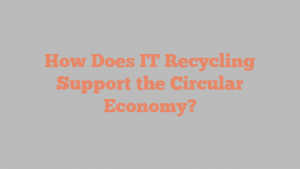
As the story goes, there once was a farmer and his only son in the days before the Civil War. Having only one horse, the farmer and his son worked long, hard days, from sunrise to sunset, just to survive, with nothing to lose.
One day when father and son plowed the fields, their horse got scared and ran away. The son was devastated; “What bad luck, now what do we do?”
The father replied; “Good luck, bad luck, too early to say.”
The father and son continued to work on the farm. Then one day his horse comes back running down the hill with 6 other horses. The son exclaimed: “How lucky, now we have all the horses we will need!”
To which the farmer replied; “Good luck, bad luck, too early to say.”
The next day, while the farmer and his son were working with the horses, a particularly difficult horse threw the son and broke his leg. The son shouted: “Oh father, I am so sorry, now you have to work the farm by yourself. Too bad!”
Once again the father replied, “Good luck, bad luck, too early to say.”
Several days later, the Civil War broke out and all fit young men were sent to war. The farmer’s son, who had a broken leg, was forced to stay home.
After the leg had healed, the father had the only farm around with a son to help and seven horses to start. They worked the farm and prospered.
Good luck, bad luck. It’s too early to tell.
Maybe.
Good luck, bad luck. It all depends on how you look at it.
Getting closer.
Good luck, bad luck. It depends on which one you choose and what you do with it.
Bingo. Absolutely. Now you get it!
At each stage of “bad luck”, the farmer could have given up, which could have prevented the farmer and his son from taking advantage of the “good luck” that was presented to them.
In this story, there are at least three principles of success that allowed the farmer and son to prosper. We’ll see:
Respond vs React
At each turn of events, the son reacted. Reacting generally implies not thinking things through, operating without enough information to make a good decision. The farmer, on the other hand, responded to each event using his brain and the power of perspective. This allowed him to be “able to respond, able to respond” to events, both good and bad, that came his way.
Attitude
The son’s attitude was “things happen to us and there is nothing we can do about it.” The farmer’s attitude was “things happen, and then they happen to us. What we do with what happens is the difference that makes the difference.”
Filters
We all have “filters” in our thinking that determine how we see the world.
For the son, he filtered the events into two categories, “this is good for us or bad for us.” He had what I call “trouble filters”, seeing only the bad in the events and how it affected him.
The father, on the other hand, had different filters. It had what I call “solution filters”. Whatever the events, he knew that a solution could be found in both “good luck and bad luck.”
It’s like the character Qui-Gon Jinn, played by Liam Neeson, says in the recent Star Wars installment when one solution doesn’t work: “… another solution will be presented.” That is a solution filter!
While it may not be runaway horses, broken legs, and civil wars, we all have events in our lives that can make or break us. When we bring the tools to respond, attitudes, and solution filters to these events, we have a much better chance that they will work for us and thrive as a result.


